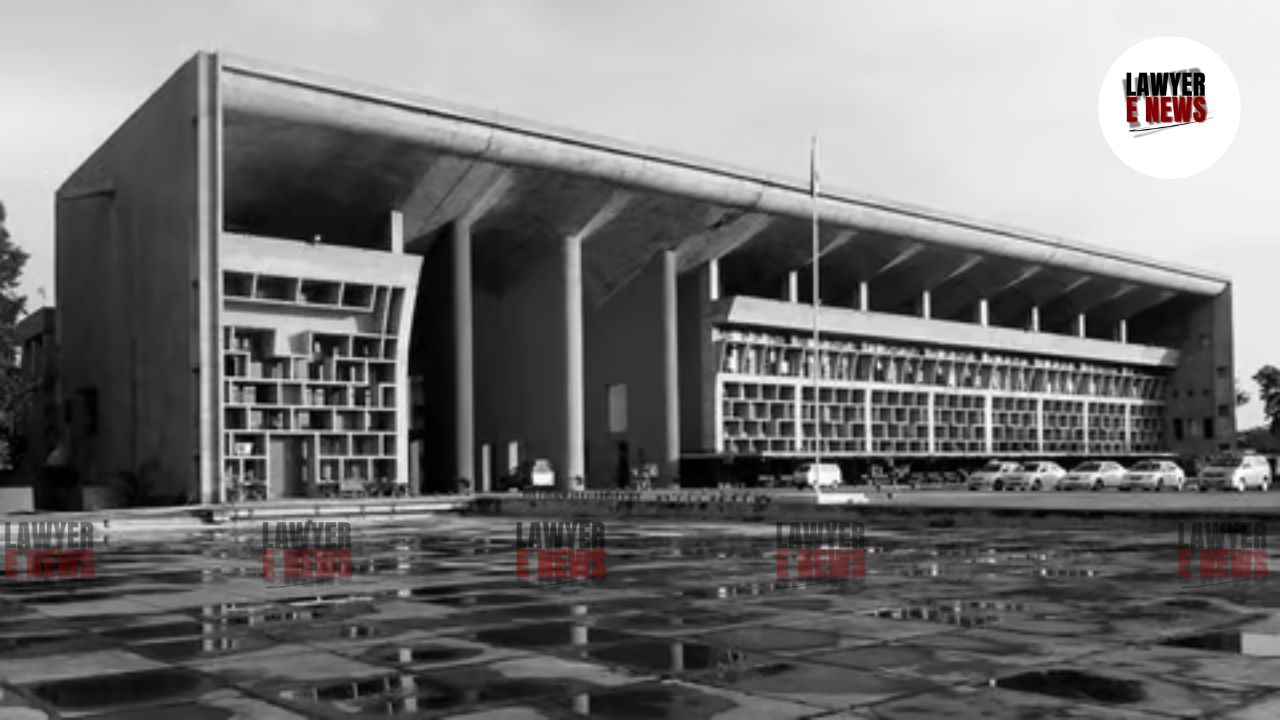-
by sayum
14 February 2026 2:22 PM



“Strict Adherence to Timelines is Vital for GST Administration” – Court Dismisses Petition to Amend GSTR-1 Beyond Deadline. In a significant judgment Punjab and Haryana High Court dismissed the writ petition filed by Bar Code India Limited, seeking permission to amend errors in its GST returns (GSTR-1) for the quarter ending June 2021. The Court held that rectification of GST returns beyond the statutory period prescribed under Section 37(3) of the Central Goods and Services Tax Act, 2017 (GST Act) is impermissible. The bench, comprising Justice Sanjeev Prakash Sharma and Justice Sanjay Vashisth, emphasized the need for strict adherence to statutory timelines to ensure systemic efficiency and certainty in tax administration.
Bar Code India Limited issued invoices for a transaction with FedEx Express Transportation & Supply Chain Services (India) Private Limited in May 2021. While filing its GSTR-1 for the quarter ending June 2021, the petitioner erroneously recorded the point of sale as Mumbai instead of Delhi and mentioned the GST number of Mumbai instead of Delhi. This error came to light only in April 2023, when the purchaser faced difficulties in availing Input Tax Credit (ITC).
The petitioner approached the authorities to allow rectification of the errors, but the request was rejected as it was beyond the statutory timeline under Section 37(3). The petitioner argued that the error was inadvertent and rectification should be allowed to prevent business losses.
The Court analyzed the statutory framework governing the filing and rectification of GST returns, including Sections 16(4), 37, and 39 of the GST Act.
The Court highlighted that Section 37(3) permits rectification of errors in GSTR-1 only until November 30 following the financial year to which the invoice pertains. For the financial year 2021-2022, the deadline was November 30, 2022.
The Court observed that adherence to these timelines is essential to maintain procedural finality and avoid cascading effects on subsequent filings, such as GSTR-2A and GSTR-3B. Any changes beyond the statutory deadline would disrupt the tax administration framework.
"The process is complete in itself, and each step is linked to the next. If one step is erroneous and not corrected within the timeline, it creates a cascading effect, undermining the integrity of the GST regime."
The Court rejected the petitioner’s plea that inadvertent errors should warrant exceptions. It emphasized that businesses are expected to be well-versed with tax compliance requirements, including statutory timelines. Allowing exceptions for individual cases would set an undesirable precedent and compromise systemic integrity.
"The provisions of the GST Act cannot be interpreted to accommodate individual hardships caused by errors, especially when the law provides ample time for rectification."
The Court referred to the Supreme Court's judgment in Union of India v. Bharti Airtel Limited (2022) 4 SCC 328, which held that belated rectifications in GST filings disrupt the statutory mechanism and create uncertainties for stakeholders. The apex court had categorically disallowed unilateral rectifications, underscoring the importance of adhering to timelines.
"Any indulgence shown contrary to the statutory mandate would lead to chaos and collapse of the tax administration framework."
The Court noted that rectification of GSTR-1 beyond the deadline would not restore the purchaser’s ability to claim ITC, as Section 16(4) of the GST Act bars ITC claims beyond the specified timeline. Even if the petitioner were allowed to amend its returns, the purchaser would remain ineligible to claim ITC.
"Even if the petitioner is allowed to rectify its returns now, it will not automatically enable the purchaser to claim ITC, as the claim itself is time-barred under Section 16(4)."
The High Court dismissed the writ petition, holding that the statutory timelines under the GST Act must be strictly adhered to. The Court declined to follow judgments from other High Courts that allowed rectifications beyond the statutory period, stating that the Supreme Court’s decision in Bharti Airtel governs the issue conclusively.
The judgment underscores the importance of maintaining procedural finality and systemic integrity in the GST regime, even at the cost of individual hardships.
Date of Decision: November 14, 2024
